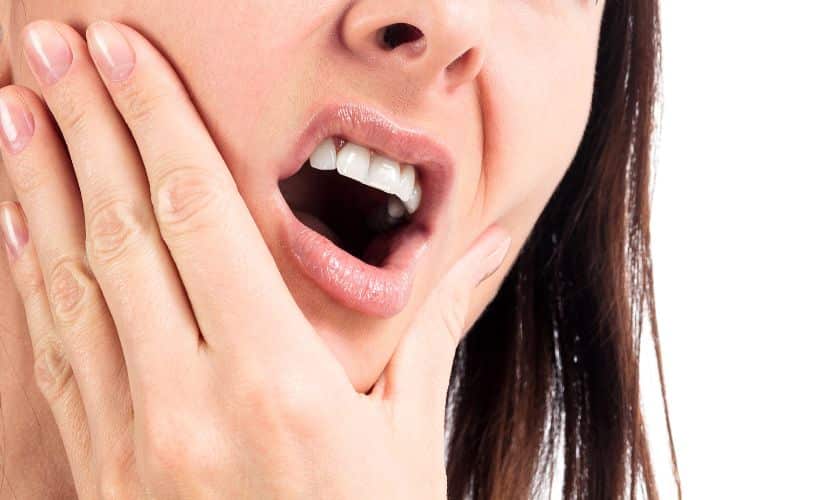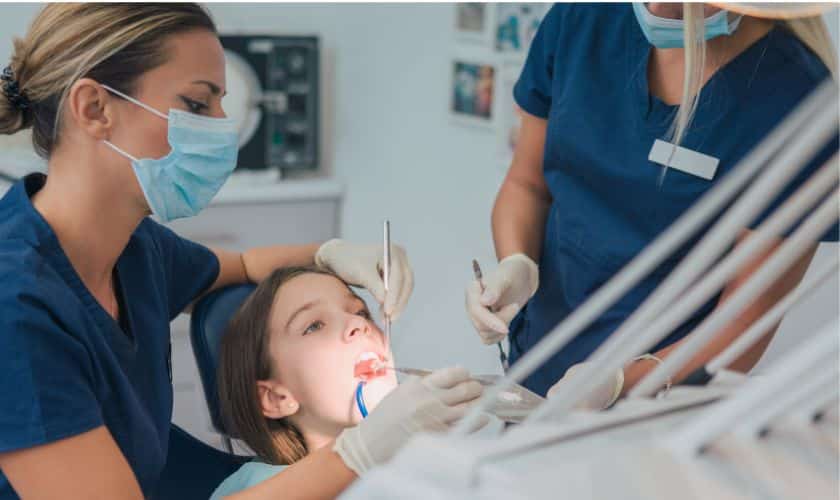Top Family, Cosmetic and Implant Center In 537 Amherst St, Nashua, NH 03063
A Comprehensive Guide to Abscessed Teeth

An abscessed tooth is an infection in the center of a tooth. Without proper treatment, this type of infection can spread and cause serious, even life-threatening complications. As such, it is important to understand what causes an abscessed tooth, the symptoms associated with it, and the possible treatments available. Read on for a comprehensive guide to abscessed teeth.
Types of Abscesses
There are two types of abscesses that can form around a tooth – periapical and periodontal. The most common type is a periapical abscess which occurs when bacteria invade the inner part of the tooth or when there is an accumulation of pus inside the soft tissue near the root of a tooth. Periodontal abscesses occur in between teeth and are caused by bacteria that accumulate due to poor dental hygiene or gum disease.
Causes of Abscessed Teeth
The primary cause of an abscessed tooth is bacterial infection from poor oral hygiene. Bacteria can enter through cavities or broken fillings, causing infection and inflammation in the area around the affected tooth. Other causes include trauma to a tooth from biting down too hard on something or grinding your teeth at night, as well as advanced gum disease where pockets form around teeth allowing bacteria to reach deeper levels within the mouth.
Symptoms of Abscesses
Common symptoms associated with an abscessed tooth include pain that radiates to other areas such as your ear or jaw, swelling in the area around your affected tooth, fever, bad breath or a bad taste in your mouth, difficulty chewing food on that side of your mouth, redness or tenderness in your gums near the affected area, and sensitivity to hot or cold temperatures that lingers long after you remove whatever food item you have eaten. If left untreated, these symptoms may worsen over time leading to more severe complications such as facial swelling and jaw stiffness.
Treatment Options for Abscessed Teeth
If you suspect you have an abscessed tooth it’s important to seek treatment from your dentist immediately before further damage can occur. Your dentist will likely prescribe antibiotics to fight off any infection present and may also recommend draining any pus present near your affected area if needed; this procedure usually requires general anesthesia so make sure you speak with your doctor about all potential risks before making any decisions regarding treatment options for your particular case. In some instances surgery may be necessary if there is severe damage to the root canal system which would require removal of infected tissue from inside your mouth as well as sealing off any remaining gaps where bacteria could enter again in future; this type of procedure should only be done by experienced professionals who specialize in oral surgery since it carries greater risks than other forms of treatment for this condition (such as antibiotics). Lastly depending on how advanced stage is at diagnosis time other treatments might include root canals chambers cleaning etc., all under expert supervision so make sure you choose right specialist for job!
Conclusion
Abscessed teeth are serious problems that require immediate attention from dentists because they can lead to serious health issues if not addressed promptly and correctly. Knowing how they can be caused (poor oral hygiene/gum disease), their common symptoms (pain radiating elsewhere/swelling/fever), and potential treatments (antibiotics/drainage/surgery) will help patients make informed decisions about their care if they ever experience one themselves. With proper care and attention provided by experienced dental professionals, people suffering from an abscessed tooth can hopefully find relief soon!
There are two types of abscessed teeth, periapical abscesses and periodontal abscesses. Periapical abscesses form at the end of a tooth’s root, while periodontal abscesses occur between the gum and tooth root.
An abscessed tooth is typically caused by bacteria that enter the pulp chamber inside a tooth due to poor dental hygiene, trauma, deep cavities or cracks in the teeth.
Common symptoms include severe pain when chewing, inflammation of the gums around the affected area, fever, bad breath or a salty taste in your mouth, swollen lymph nodes and a persistent bad taste in your mouth.




